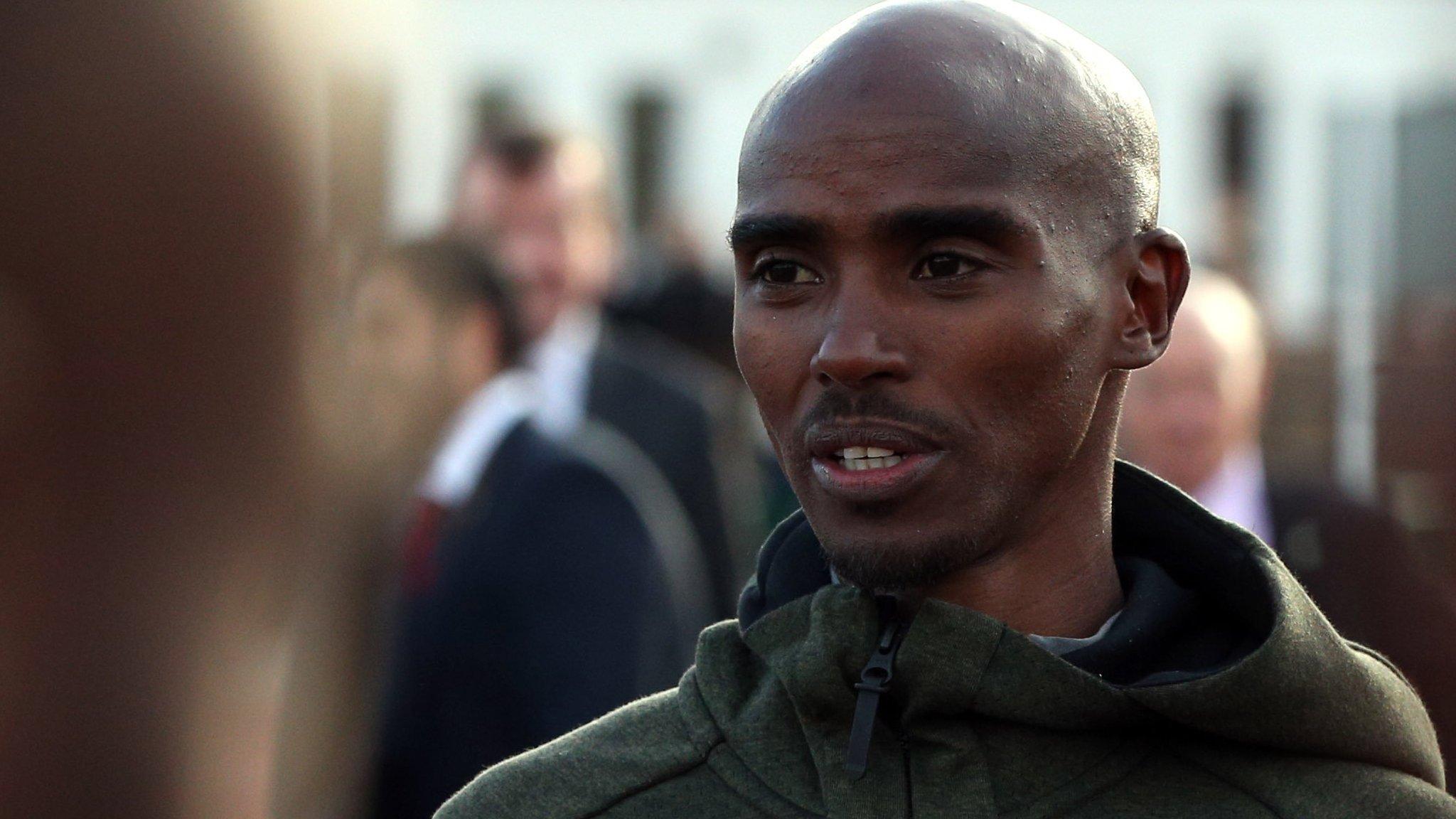Mo Farah: Doctor says L-carnitine injection not recorded correctly
- Published
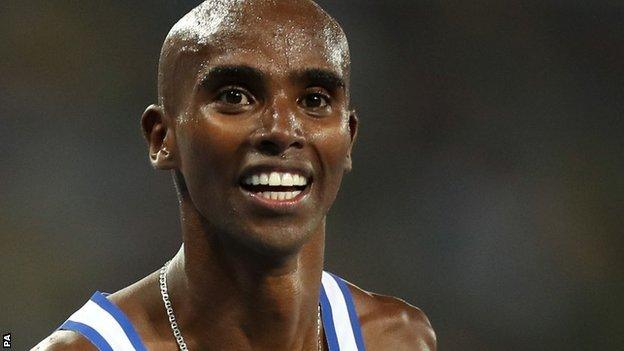
Mo Farah was given the supplement before the 2014 London Marathon, in which he finished eighth
The doctor who gave double Olympic champion Mo Farah a controversial supplement has told MPs that he failed to properly document the treatment.
Dr Robin Chakraverty said the amount of L-carnitine was well within World Anti-Doping Agency (Wada) limits.
Dr Chakraverty said the substance was given to help the Briton's performance.
He said he gave 13.5 millilitres of the legal supplement, below the maximum allowed of 50ml within six hours, by injection and not via drip.
Ed Warner, the UK Athletics (UKA) chairman, told MPs that not recording injections was "inexcusable" although Dr Chakraverty said record keeping had since improved.
The use of the substance, given to Farah in 2014, is being looked at by the US Anti-Doping Agency (Usada) - which has called it an infusion - to determine whether rules were broken.
The injection was made in consultation with Farah's American coach Alberto Salazar.
Salazar and Farah, Olympic champion in both the 5,000m and 10,000m in 2012 and 2016, have strongly denied breaking any rules.
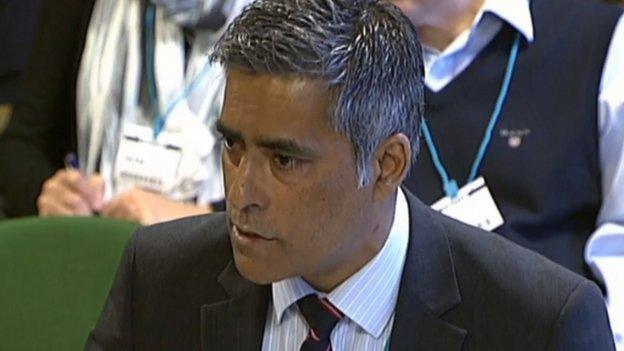
Dr Chakraverty giving evidence to MPs at a 'Combating Doping in Sport' session
Dr Chakraverty, formerly UKA's chief medical officer, now works with the England men's football team,
He told the Culture, Media and Sport Select Committee on Wednesday there had been staffing cuts at UKA and he had been responsible for the healthcare of 140 athletes in an "immensely busy" job.
"Where we have had lapses is when you're on the road, when you're travelling, and that is probably the unique thing about this role. Not all our athletes train in one area," he said.
"When you are constantly on call for athletes you travel to those athletes. If you don't record it straight away - which I didn't in this case - then it can get forgotten because you have all these other things. That is just the scenario. It is not an excuse."
In March, the BBC reported that UKA staff may not have properly recorded the use of L-carnitine - a naturally occurring amino acid often prescribed as a supplement for heart and muscle disorders.
Warner said it was "disappointing" the injection had not been recorded at the time by the doctor.
"That has formed part of Dr Chakraverty's annual appraisal processes. That was something which was clearly marked out by Dr Chakraverty and his line manager as in need of improvement. He won't be proud of that fact but won't shy away from the fact it's there," he said.
Farah was given the injection during preparations before his full London Marathon debut in 2014, in which he finished eighth.
Salazar has been under investigation by Usada and UK Anti-Doping (Ukad) since 2015, following claims of doping and unethical practices made in a BBC Panorama programme.
'Don't tar us with the same brush'- Warner
At a meeting of the committee earlier this year, a doctor who received a 'mystery package' for cyclist Sir Bradley Wiggins in 2011 said he had no record of his medical treatment at the time.
Ex-Team Sky medic Dr Richard Freeman had a laptop containing medical records stolen in 2014, the committee was told in March.
Team Sky and British Cycling's record-keeping was questioned at the earlier hearing and when it was raised again on Wednesday, Warner replied: "Please don't tar us with the same brush".
He said UKA was keen to centralise its records and now handles all of Farah's medical care.
"There was a period of a few months in which we allowed Mo to go to Oregon and be treated by a local GP over in America, and we were observing his medical care from afar," said Warner.
"A decision was taken that we had to make sure we were in control of all medical interventions where Mo was concerned. That should always be the case for funded athletes."
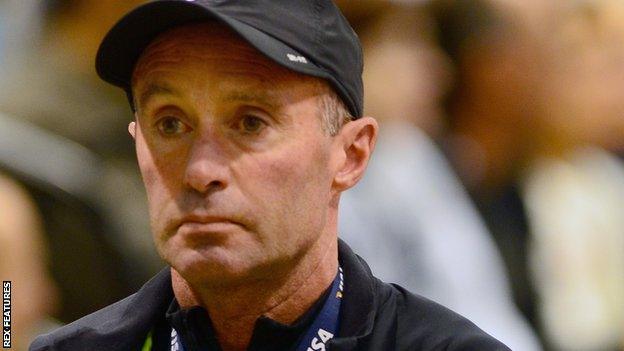
Alberto Salazar has been under investigation by the US Anti-Doping Agency
Salazar 'open and transparent'
An interim Usada report centres on claims a number of athletes at Salazar's Nike Oregon Project were given L-carnitine - some of which were "almost certainly" more than 50ml and therefore doping violations.
Another former UKA doctor, Dr John Rogers, visited a training camp held in France in 2011.
He reported back some concerns about the side-effects of some of the supplements Farah was taking, but stressed there were no worries that anything illegal may have been taking place.
Farah was receiving supplements to help prevent stress fractures and for iron and vitamin D deficiencies.
Dr Rogers told the committee Salazar's knowledge of sports medicine and science at the time was more advanced than any coach he had worked with.
"We had several conversations here and he was very open and transparent about the sports medicine practices he was using," he said.
"There was no concern there were any Wada rules being broken.
"There were some medical concerns around possible side-effects from some of the strategies they were using and it was important I shared that in terms of the continuity of care."
Committee chairman Damian Collins MP said at the start of the hearing that the MPs' final report into anti-doping would now not be published until after the General Election on June 8.
- Published20 March 2017
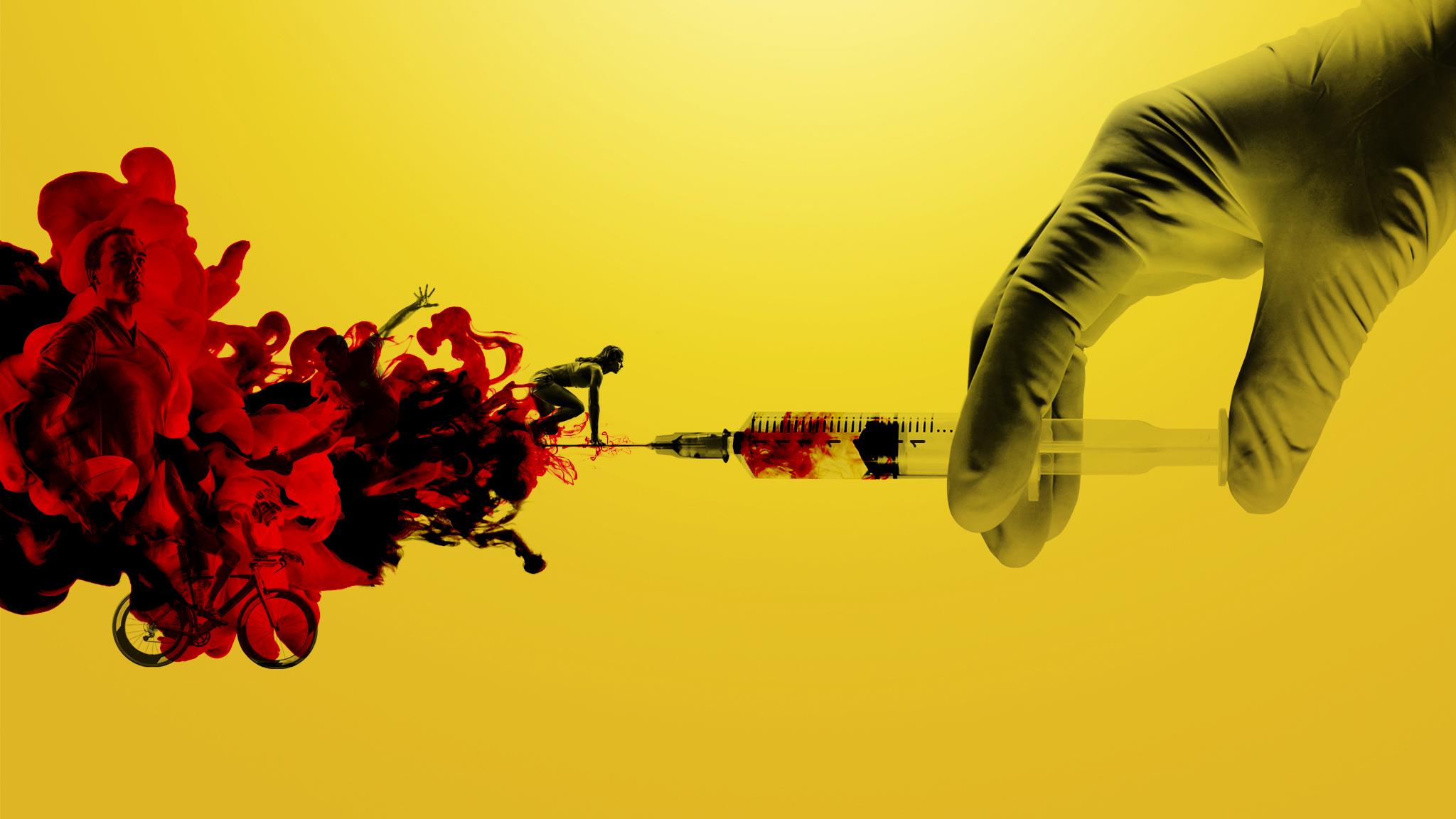
- Published18 March 2017
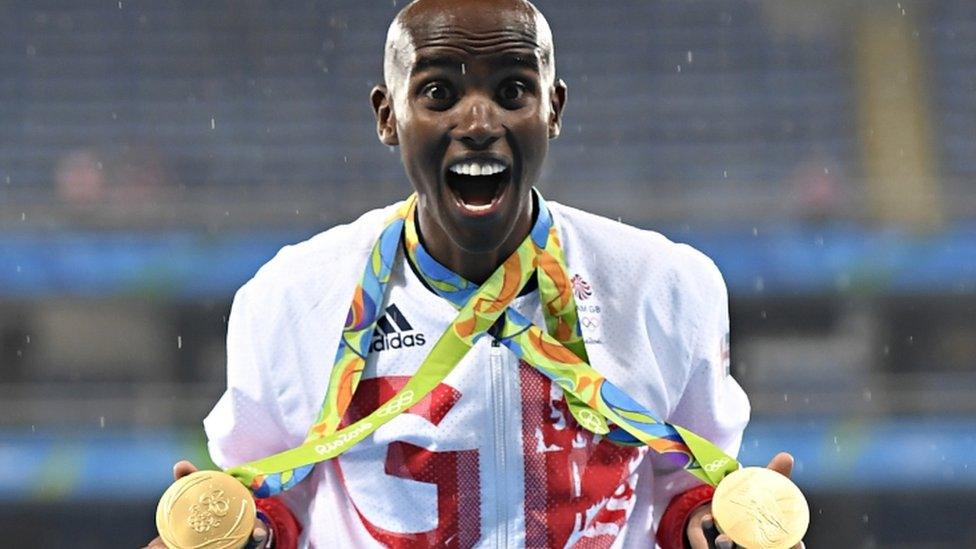
- Attribution
- Published16 March 2017

- Published8 March 2017
